Understanding FORS Compliance for Your Fleet
FORS compliance, or the Fleet Operator Recognition Scheme compliance, is a pivotal certification for fleet operators aiming to improve safety, efficiency, and environmental protection. In this guide, we delve into the essentials of FORS compliance and its significance, ensuring you have the knowledge to enhance your fleet operations effectively.
What is FORS Compliance?
FORS compliance is a voluntary accreditation scheme that promotes best practices for commercial vehicle operators. Its core focus is on safety, efficiency, and environmental protection. By adhering to FORS compliance, fleet operators demonstrate their commitment to improving road safety, reducing emissions, and enhancing operational efficiency.
FORS compliance is recognised nationwide, and achieving it can significantly boost your company’s reputation, providing a competitive edge in the marketplace. It sets a benchmark for safety and operational standards, ensuring your fleet is operating at its optimum.
Benefits of Achieving FORS Compliance
Achieving FORS compliance offers several advantages, including:
- Improved Safety: FORS compliance ensures that your fleet adheres to the highest safety standards, reducing the risk of accidents.
- Environmental Responsibility: It encourages the adoption of eco-friendly practices, reducing your carbon footprint.
- Cost Efficiency: By optimising operations, FORS compliance can lead to significant cost savings in fuel and maintenance.
- Enhanced Reputation: Being FORS compliant can enhance your company’s image, building trust with clients and partners.
The Process of Achieving FORS Compliance
To achieve FORS compliance, fleet operators must undergo a comprehensive assessment covering various aspects of fleet management. This process includes:
- Audit: An initial audit assesses current practices against FORS standards. It identifies areas for improvement and ensures compliance with legal requirements.
- Training: Fleet operators and drivers must undergo specific training programmes to understand and implement FORS standards effectively.
- Implementation: After training, necessary changes are implemented to align operations with FORS requirements.
- Continuous Improvement: Regular reviews and audits ensure ongoing compliance and promote continuous improvement.
For more detailed guidance on the certification process, visit the official GOV.UK page on FORS.
Common Challenges and Solutions in FORS Compliance
While achieving FORS compliance can be rewarding, it comes with its challenges. Some common issues include:
- Resource Allocation: Ensuring adequate resources for training and implementation can be demanding. A strategic plan can help allocate resources effectively.
- Keeping Up-to-Date: Regulations and standards can change, making it crucial to stay informed. Regular training and updates can mitigate this challenge.
- Staff Engagement: Gaining buy-in from all staff levels is essential. Communicating the benefits of FORS compliance can foster engagement and commitment.
Addressing these challenges with a proactive approach ensures successful FORS compliance.
Frequently Asked Questions
For additional information, explore our services page or visit the about us section to learn more about our commitment to FORS compliance and other fleet solutions.
Book a Free Compliance Review
Get a free 30-minute review of your fleet compliance. Contact us today.
FAQs about fors compliance
- What is fors compliance?
- fors compliance explained for UK fleets, in clear, non-technical language.
- Do I need fors compliance for my operation?
- Most operators benefit when compliance, risk and cost justify it; speak to a transport professional.
- How much does fors compliance cost?
- Costs vary by fleet size and scope. Request a tailored quote.
- Who regulates this?
- In the UK, guidance is provided by GOV.UK, DVSA and the Traffic Commissioners.





